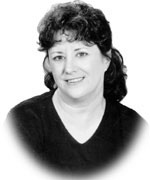 Fish and shellfish farming quest By Laine Welch September 19, 2005
"This comes primarily from the push by our government to increase U.S. aquaculture production five-fold, in both offshore and nearshore waters," said Arliss Sturgulewski, a task force member and Sea Grant advisor to the University of Alaska School of Fisheries. "But what does it all mean to the environment and our wild fisheries? There are so many things we need to know before we start down a certain path," she added. The Anchorage meeting was the first in a series for the task force, which originates from the Woods Hole Oceanographic Institute and is funded by the Pew Trusts. It will convene in several other coastal communities before it presents its recommendations next summer. "Our hope is that we will take a precautionary approach, and that the aquaculture industry will develop in an environmentally, socially and economically sustainable way," said task force director Chris Mann. He added: "Alaska has potentially more to lose from a badly structured national policy than anywhere else, because you have some of the healthiest and most valuable fisheries in the country." Contact chris.mann@earthlink.net to make comments or for more information. ECOSYSTEMS AND SCIENCE - How can commercial fisheries best co-exist with all other things living in or on the sea? That's the question being posed by policy makers as they move from a primarily single species approach to managing an entire ecosystem. "This includes fish populations and humans and oceanographic and physical conditions, and all the interactions of the different species," said UAF fisheries professor Terry Quinn. Quinn is among a panel of scientists who recently unveiled a report that provides some practical suggestions. "First, as a society we must decide what our goals are toward the ecosystem. Do we want a pristine fish population where they are swimming around and we watch them, or do we want to to provide economic and social opportunities for employment. There are trade offs and we have to know what they are," Quinn said at a press conference held last week by the Pacific States Marine Fisheries Commission, sponsor of the report. The report also stresses that the "voice of science" should not be removed from the realm of regional fishery management councils, as some policy makers are suggesting. Rather, it should be integrated and, in light of the move towards ecosystems, strengthened. The concept of managing an entire ecosystem is so complicated, it makes anyone's head swim. "The bottom line is it is going to take a lot of thought, a lot of people and a lot of money. And if we are not going to make that kind of contribution, we won't get there," Quinn said. Get a copy of the report - Strengthening Scientific Input and Ecosystem-based Fishery Management for the Pacific and North Pacific Fishery from the PSMFC at www.psmfc.org . TOP COOKS ON THE ROCK - Celebrity chefs from our nation's capital are visiting Kodiak to see where the salmon they feature in their restaurants comes from. Chefs Robert Wiedmaier of Marcel's and Cesare Lanfranconi of Tosca restaurants will spend three days this week"on the rock," along with a writer from Food & Wine magazine and a film crew. "They're interested in seeing what our lives are like and talking to local fishermen," said Leslie Smith, director of the Star of Kodiak Regional Marketing program, sponsor of the event. She said that even though this promotion is primarily for salmon, the visitors will "experience all the seafood species we have to offer." Smith said the goal is to provide a "link between the consumers who eat the fish and the source of the fish." The Star of Kodiak program does not designate a label or brand per se. It is more of a monitoring operation that assures the quality of fish from the dock to delivery. "It's an identification label that helps get out the story of Kodiak, and let's people know where the fish they are eating comes from," Smith said. Smith and the group over the
past two years have especially promoted pink salmon fillets to
chefs around the country, and it's become a favorite with the
visiting chefs from DC. In fact, Wiedmaier's "Kodiak salmon
duo" recipe is the Dish of the Week being featured
by National Restaurant News (recipe below). Meanwhile, Bazan recommends that people pursue a nutritional approach to warding off Alzheimer's by adding 200 to 300 milligrams of DHA per day to their diets. Cold water fish is the best source, or take fish oil supplements. It is estimated that 4.5 million people suffer from Alzheimer's disease, and that number is expected to rise to 16 million as the population ages. The LSU study will be published October 1 in the Journal of Clinical Investigation. The magical health properties of omega threes have not been lost on the general public. Nutrition Business Journal reports that sales of fish oil supplements in the U.S. have climbed from $35 million ten years ago to $310 million this year. Recipe - Kodiak salmon duo by Chef Wiedmaier of Marcel's: NRN/Sept. 12) - Executive chef Robert Wiedmaier cures Kodiak pink salmon in Brittany salt and sugar for about 20 hours. He wipes the salt and sugar off, slices some of the salmon and dices the rest. He smears the slices with Belgian mustard and then dresses them in a marinade of lemon zest, olive oil and dill. He tosses the diced salmon with mustard, crème fraîche, red onions, chives, hot pepper sauce, salt and pepper, then shapes it into a timbale and tops it with potatoes finely sliced into angel hair and fried in grapeseed oil. He plates the two preparations, garnishing the timbale with micro celery and micro beet leaves dressed with lemon juice and olive oil.
Publish A Letter on SitNews Read Letters/Opinions Submit A Letter to the Editor
|
||
